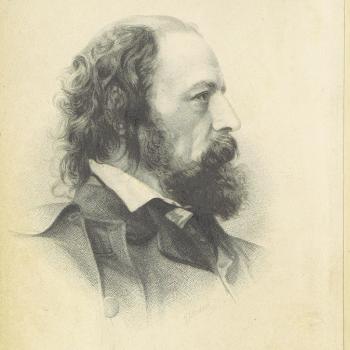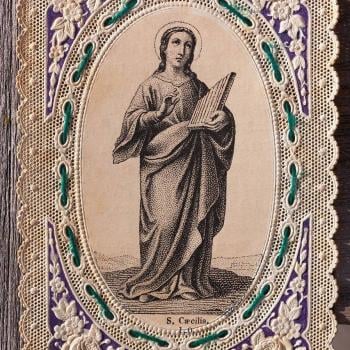2 Samuel 7:4-5, 8-11, 16: The word of the LORD came unto Nathan, saying, . . . Thus saith the LORD of hosts, I took thee from the sheepcote, from following the sheep, to be ruler over my people, over Israel: and I was with thee whithersoever thou wentest, and have cut off all thine enemies out of thy sight, and have made thee a great name, like unto the name of the great men that are in the earth. Moreover I will appoint a place for my people Israel, and will plant them, that they may dwell in a place of their own, and move no more; neither shall the children of wickedness afflict them any more, . . . . Also the LORD telleth thee that he will make thee an house. . . . And thine house and thy kingdom shall be established for ever before thee: thy throne shall be established for ever.
Psalm 89:2-5, 27-29: I have said, Mercy shall be built up for ever: thy faithfulness shalt thou establish in the very heavens. I have made a covenant with my chosen, I have sworn unto David my servant, Thy seed will I establish for ever, and build up thy throne to all generations. And the heavens shall praise thy wonders, O LORD: thy faithfulness also in the congregation of the saints.
Whatever Mormons may believe about David (see Doctrine and Covenants 132:38-39), the Book of Mormon treats him well. It quotes from Isaiah 9:7, where David prefigures the Christ: the Messiah will sit on David's throne forever, establishing and upholding the Davidic kingdom with judgment and justice.
God begins with what seems of no account to most—the shepherd David, a baby born in a Palestinian manger, the house of Israel, early Christianity, and for Mormons Joseph Smith. To show his power and mercy, he covenants with those at the bottom or on the outside or at the edges of our societies to give them a place forever, a place where they will not be afflicted by the wicked. And he keeps his covenant.
In the middle of afflictions it is difficult to believe that God keeps covenant. There continue to be people who do evil, usually without thinking about it. There continue to be people oppressed and cast out by that evil, sometimes without knowing it, but often all too aware of it.
In today's world, there are clear cases of oppression, where it is relatively easy to know the good guys from the bad, though probably fewer cases today than in ancient times. But for many who live in technological, market societies, it is rarely easy to know with certainty those who oppress from those who are oppressed.
In spite of that we create bogeymen so that we can pretend that judgment is easy. We put white hats on those whom our fellows and we like for the same reason. Such judgments are almost always themselves forms of oppression, even when we get right who the bad guys and good guys are. For we seldom make them to bring about righteousness, but instead to bring about our will: our will against theirs, a contest of wills rather than a striving for good.
Making those judgments is not only evil because it oppresses others. It is evil because it allows me to avoid the important question, Who am I? Am I an oppressor?
Waiting for the Lord's coming, we have to ask ourselves, "Are we among his covenant people, or are we among the wicked?" It is easy to believe that we, whoever we are, are among the covenant people. Few think themselves wicked.
It was equally easy for David to feel secure in his covenant. He was, after all, the king of Israel, given the throne by God himself. Yet David raped Bathsheba and arranged for the murder of Uriah. If David, in his self-assurance and power, can fail, then so can I.
But God keeps covenant even when we do not.
Mosiah 3:3-5: And he said unto me: Awake, and hear the words which I shall tell thee; for behold, I am come to declare unto you the glad tidings of great joy. For the Lord hath heard thy prayers, and hath judged of thy righteousness, and hath sent me to declare unto thee that thou mayest rejoice; and that thou mayest declare unto thy people, that they may also be filled with joy. For behold, the time cometh, and is not far distant, that with power the Lord Omnipotent who reigneth, which was, and is from all eternity to all eternity, shall come down from heaven among the children of men and shall dwell in a tabernacle of clay and shall go forth amongst men, working mighty miracles, such as healing the sick, raising the dead, causing the lame to walk, the blind to receive their sight, and the deaf to hear, and curing all manner of diseases. And he shall cast out devils, or the evil spirits which dwelleth in the hearts of the children of men.





